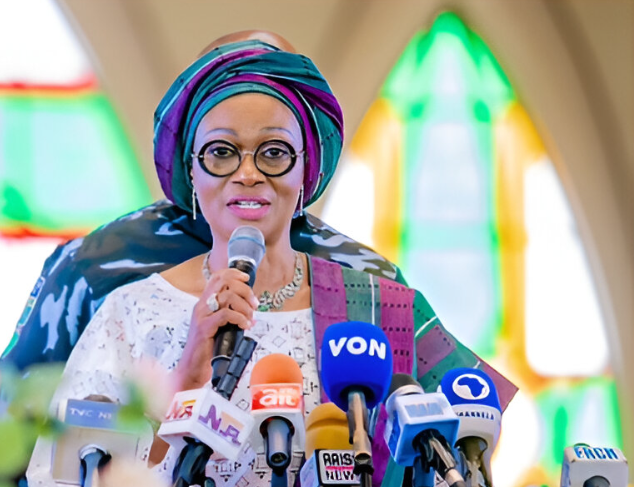For a land locked state which is also non-oil producing, Kaduna State’s ranking as the seventh subnational in Internally Generated Revenue(IGR) in 2023, is quite phenomenal. Recently, the National Bureau of Statistics (NBS) released the IGR of all the 36 states and the Federal Capital Territory (FCT). In that report, Kaduna State raked in N62.49 billion last year, emerging the state with the highest IGR earnings in the North and seventh in the nation, with Lagos, FCT, Rivers, Ogun, Delta, Edo states ranking ahead of it.
Indeed, this significant leap in IGR to N62.49 billion, showcases the visionary policies of Governor Uba Sani, whose administration has prioritized tax reforms, business-friendly policies, and rural development. Kaduna’s feat is impressive, considering the distinct advantages that the states which generated more revenue than it, have over it. For example, it has no coastal access like Lagos, Rivers, Edo and Delta as well as Ogun states. In addition, its textile industries are comatose.
However, Kaduna state achieved this milestone through strategic reforms, leveraging effective governance, strategic tax reforms, and a renewed focus on transparency. Governor Sani’s leadership has not only enhanced the state’s revenue profile but has also made it a model of effective governance in Northern Nigeria.
For instance, the Governor has optimized Kaduna’s tax revenue without imposing new taxes. This success stems from an innovative shift in approach, focusing on widening the tax net horizontally and reaching more taxpayers, rather than the vertical approach of the past, which merely increased tax rates for those who are already paying. The horizontal model has brought more individuals and businesses into the tax system.
Advertisement
Besides, Governor Uba Sani’s administration has modernized tax administration, with the implementation of a “One-Stop-Tax Portal” known as the “Pay Kaduna Portal”. This digital platform enables residents and businesses to pay taxes like Withholding Tax and Stamp Duty Tax, from any location, eliminating the need to visit KADIRS offices. By automating tax collection, the Governor Uba Sani administration has significantly reduced revenue leakages, ensuring that every taxpayer’s contribution enters government’s coffers. The automation did not only bring convenience to tax payers but also enhanced transparency, built taxpayers’ trust and plugged leakages.
In addition, a central factor in Kaduna State’s improved IGR is Governor Uba Sani’s commitment to fostering a favorable business environment. Businesses that once left Kaduna due to past challenges have returned, attracted by the administration’s pro-business policies. By prioritizing simplicity in the tax system, businesses face fewer barriers, which allows them to focus on expansion. This, in turn, contributes to higher tax revenues, as more businesses willingly contribute to the state’s coffers.
Since assuming office, Governor Sani has been implementing policies that have a human face, crafted with the everyday needs of citizens and businesses in mind. These policies recognize the need for balanced taxation—where citizens contribute fairly without being overburdened—and are structured to attract investment and create jobs. Such policies have positioned Kaduna State as an attractive destination for business and industrial activities in Northern Nigeria
Advertisement
Governor Sani’s Rural transformation projects, such as roads construction, building of new schools, hospitals upgrade and community infrastructure, also have a positive effect on tax compliance. Because citizens see tangible developments funded by their taxes, they are now more inclined to pay voluntarily, viewing their taxes as a means to better their communities. This approach reflects Governor Sani’s understanding of the value of public trust and the need for accountability, as he aims to create a sustainable revenue model grounded in transparency and service to the people
Likewise, expanding the tax net by targeting new taxpayers instead of increasing tax rates has been key to the state’s improved revenue collection. This horizontal tax expansion allows the government to capture revenue from previously untaxed or undertaxed sectors, broadening the base without placing an excessive burden on any single group. For example, there is a renewed drive on property taxes and ground rents. These twin revenue streams from real estate sector reflects the new thinking of the Governor Uba Sani administration. Similarly, KADIRS is constantly keeping an eagle-eye on companies and businesses, especially to remit “Pay As You Earn” (PAYE) as and when due.
Governor Sani’s administration, through KADIRS, has shown that with the right policies and efficient systems in place, revenue can be generated without additional taxation. Ultimately, the revenue generated will be used to enhance infrastructure, improve education, and expand healthcare services. By enhancing IGR through innovative, transparent tax reforms and business-friendly policies, Kaduna will become less dependent on federal allocations.
By and large, the Kaduna IGR success story is a testament to what strategic leadership and effective governance can achieve, as it showcases the benefits of innovation, inclusivity, and accountability in public service. It has also proven that with the right vision and policy mix, even landlocked and resource-limited states can achieve remarkable success.
Advertisement
Dutsinma wrote from Malali, Kaduna
Views expressed by contributors are strictly personal and not of TheCable.











